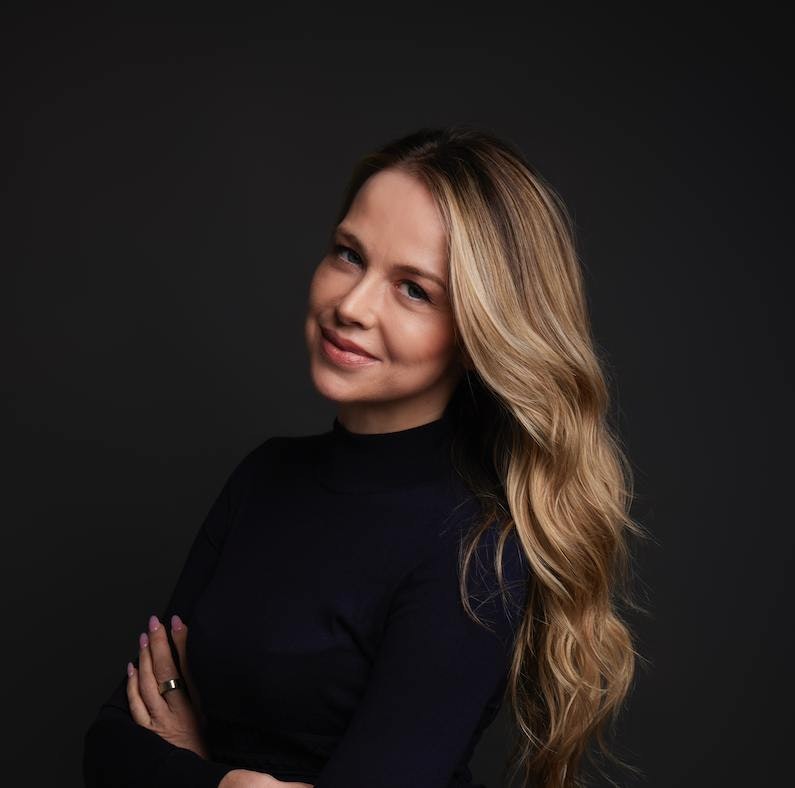The crypto industry has experienced its share of peaks and troughs over the past few years.
At its height in 2022, crypto startups raised more than $20bn globally. But after a number of high-profile calamities — particularly the collapse of exchange FTX in late 2022 — and increased regulatory scrutiny, VCs pulled back from the sector.
Some of Europe’s biggest crypto companies — including Copper, Sorare and Ledger — laid off staff and saw partnerships with big-name financial institutions fall through as the price of bitcoin, a key measure of the market’s health, fell below $17k from a previous peak of $64k in 2021.
And while funding to the sector has yet to the heady highs of 2022, recent regulatory changes have stirred excitement among investors. Europe’s Markets in Crypto-Assets regulation (MiCA), a broadranging framework aiming to set clear rules for the industry, came fully into effect at the tail end of last year. In the UK, regulators are currently consulting on a comprehensive framework for crypto assets in the country.
There’s also buzz among more niche aspects of the crypto industry, particularly in stablecoins (cryptoassets pegged to the price of a fiat asset like the dollar) following US fintech giant Stripe’s acquisition of stablecoin infrastructure company Bridge, which closed earlier this year.
With that in mind, we asked some of the top names in crypto investing for their take on the up-and-coming crypto startups (outside their portfolios) across Europe and the UK. Check them out below:
Anna Bertha, investment lead at Digital Currency Group
Digital Currency Group is a US-based crypto venture capital firm.

Peaq — Germany
The rise of robotics, internet of things (IoT) and autonomous machines is creating an economy where physical devices can independently transact and generate value across industries like mobility, energy, and logistics.
Peaq is building the core infrastructure for this machine economy — a blockchain designed specifically for networks powering real-world infrastructure, known as Decentralised Physical Infrastructure Networks (DePINs), and machine real-world assets (crypto tokens that represent share ownership in machines).
If successful, Peaq could become the coordination layer where billions of machines transact and generate real value on blockchain, which is an entirely new frontier for crypto. For robotics, this could mean humanoid robots and autonomous machines tapping into decentralised networks for precise positioning, real-time data, and edge computing. This would allow them to navigate the world and earn an income independently.
Exo Labs — UK
Exo Labs is rethinking how cloud infrastructure is built by harnessing spare computing power from everyday Macs across the globe. Instead of relying on massive data centres, Exo is creating a decentralised network where individuals contribute hardware and earn rewards. This model could dramatically reduce costs for running intensive workloads like AI training while keeping data processing closer to the edge. It’s a clever alternative to traditional cloud giants, and a glimpse into how distributed networks might power the next era of computing.
Anera Labs — UK
Anera Labs is a proprietary high frequency trading firm focusing on digital asset liquidity provisions across decentralised finance (financial services built on top of a blockchain).
Recently, they’ve been working on creating a formal financial futures market around the most valuable commodity of our time: intelligence.
Anera is exploring ways to trade GPU hours and inference costs (measured in dollars per million tokens) as commodities, similar to how oil markets operate. If successful, this could become the risk transfer layer in the quest for superintelligence. We’ve been following them as they started off as a cross-chain liquidity primitive in 2023, solving cryptos fragmented liquidity problem.
Marguerite de Tavernost, web3 investor at Ledger-Cathay Fund
The Ledger-Cathay fund is a web3 VC fund co-managed by crypto wallet maker Ledger and global investment firm Cathay Capital.

MetalGear – France
Founded in 2022 by Clément Ravouna and Alois Jobard, MetalGear is a Paris-based fintech company using blockchain technology and stablecoins (crypto tokens pegged to the price of a fiat asset like the dollar) to address inefficiencies in cross-border payments, particularly in emerging markets.
The company just obtained a MiCA license last week, enabling the company to hold and transfer digital assets on behalf of third parties. MetalGear works primarily with Money Transfer Operators (MTOs) to improve fund transfer systems between different geographic areas, such as Europe and Southeast Asia. The company leverages blockchain technology to offer faster, more transparent, and cost-effective solutions compared to traditional banking systems like SWIFT and Western Union.
Tranched – UK
Tranched was founded in 2023 by Clément Larrue and Michaël Elalouf. Its platform automates the traditionally manual and complex process of bundling loans into securities. Using blockchain technology, they aim to reduce the friction and costs associated with setting up and operating financing transactions.
This positions Tranched as a potential disruptor in the trillion-dollar global securitisation industry, competing directly with traditional banking giants like HSBC, Barclays, and Lloyds. The company provides an innovative approach to asset-based financing, leveraging blockchain technology to enhance efficiency and reduce costs.
Atlas – Austria
Vienna-based Atlas creates high-quality 3D assets generated by AI on Bittensor, a blockchain network designed to create a marketplace for artificial intelligence and machine learning models.
Bittensor is structured into specialised groups called subnets, each focusing on a specific type of AI task. Each subnet is an incentive-based competition marketplace producing a specific kind of community related to AI with its unique focuses.
The Atlas subnet, called ‘404’, focuses on 3D asset generation specifically. Participants, including miners and validators, contribute computational resources and are rewarded with TAO tokens based on the value they provide to the network. The AI x web3 theme is at the intersection of two exciting technologies, and gaming appears as an obvious, immediate and promising use case.
Wendy Xiao Schadeck, partner at Northzone
Northzone is a European VC firm focused on early-stage tech companies.

BVNK — UK
BVNK is building a modern payments infrastructure bridging traditional finance and digital assets, enabling businesses to move money globally with speed and compliance. Its platform supports crypto and fiat rails, enabling companies to send, receive, and convert funds across currencies in real time.
In a post-MiCA environment, BVNK has emerged as a key enabler for regulated digital payments, helping fintechs and enterprises navigate licensing and compliance requirements while unlocking the efficiencies of blockchain settlement.
With MiCA creating a harmonised regulatory landscape across the EU, BVNK is well-positioned to offer cross-border financial services at scale. The team’s deep experience in banking, crypto, and compliance gives them an edge in building trusted infrastructure for a rapidly evolving market.
Fipto — France
Fipto is a regulated crypto-native payments platform helping corporates manage cross-border payments with blockchain efficiency and enterprise-grade compliance.
Licensed as a digital asset service provider (DASP) in France, Fipto stands out as one of the few crypto startups fully aligned with MiCA’s regulatory framework. The platform enables businesses to initiate, track, and reconcile global transactions in real time using both crypto and fiat — all within a secure, audited environment.
As regulatory clarity attracts institutional interest, Fipto is seizing the opportunity to become the go-to treasury and payments provider for European companies with international reach. With strong traction among finance teams and a founder-led approach grounded in payments expertise, they’re a team to watch.
Sling — Germany
Sling is developing a digital asset treasury and spend management platform tailored for web3 startups, crypto-native companies and DAOs (a type of organisation powered by blockchain technology to operate without centralised leadership).
From payroll to vendor payments and real-time treasury oversight, Sling offers the tools needed to operate crypto-first businesses compliantly and efficiently. Based in Germany, one of the first countries to align closely with MiCA’s standards, Sling benefits from a stable regulatory foundation as it scales across the EU.
With MiCA accelerating institutional adoption and legitimising crypto assets as a payment medium, Sling is well-positioned to offer a regulated backend for the next generation of decentralised companies. Its sleek UX, real-time visibility, and native crypto integrations make it an essential operating system for on-chain organisations.
Diana Biggs, 1kx
1kx is an early-stage investment firm that invests in the crypto ecosystem.

Compass Labs — UK
I first encountered Compass Labs during the company’s time at the University of Oxford’s Creative Destruction Lab. Among a strong cohort, Compass stood out for its unique combination of academic rigor, traditional finance experience, and deep fluency in DeFi. Cofounder and CEO Elisabeth Duijnstee, who holds a PhD in Physics from Oxford, brings an exceptional level of technical and market insight.
Compass Labs offers a universal application programming interface ( a software tool enabling different applications to interact with each other known as an API) layer for blockchain finance.
Compass’ API enables institutions, fintechs, and crypto apps to launch, monitor, and manage on-chain financial products — from swaps and lending to automated yield opportunities — all without writing smart contracts or building backend infrastructure. Based in London and backed by a16z, Compass is well-positioned as the shift toward financial infrastructure built on blockchains gains momentum.
Cense — Switzerland
An estimated one in twenty Europeans now holds crypto assets, a figure that is even higher amongst high-net-worth individuals. Yet despite this growing demand, many banks continue to struggle with how to support not only these assets, but also the clients who hold them. Traditional onboarding and due diligence processes are ill-suited to crypto, resulting in delays, friction, or outright exclusion.
Cense, based in Baar, Switzerland, is addressing this gap by offering regulated financial institutions a seamless, automated compliance solution. By streamlining documentation and due diligence, Cense enables banks and wealth managers to assess and onboard high-value clients who hold digital assets with confidence and efficiency.
Neverless — Spain/Latvia
Neverless brings institutional-grade crypto investing — both passive and active — to retail users through a beautifully designed, user-first app. Founded by former Revolut executives and early team members, the company reflects a deep commitment to accessibility, fairness, and transparency.
Operating out of Spain and Latvia and MiFID licensed, Neverless is already live across the EU, Switzerland, and UAE. The company’s simple, low-cost, and compliant approach is gaining meaningful traction among consumers looking for a more intuitive way to invest in digital assets.
Read the orginal article: https://sifted.eu/articles/crypto-startups-to-watch-2025/


